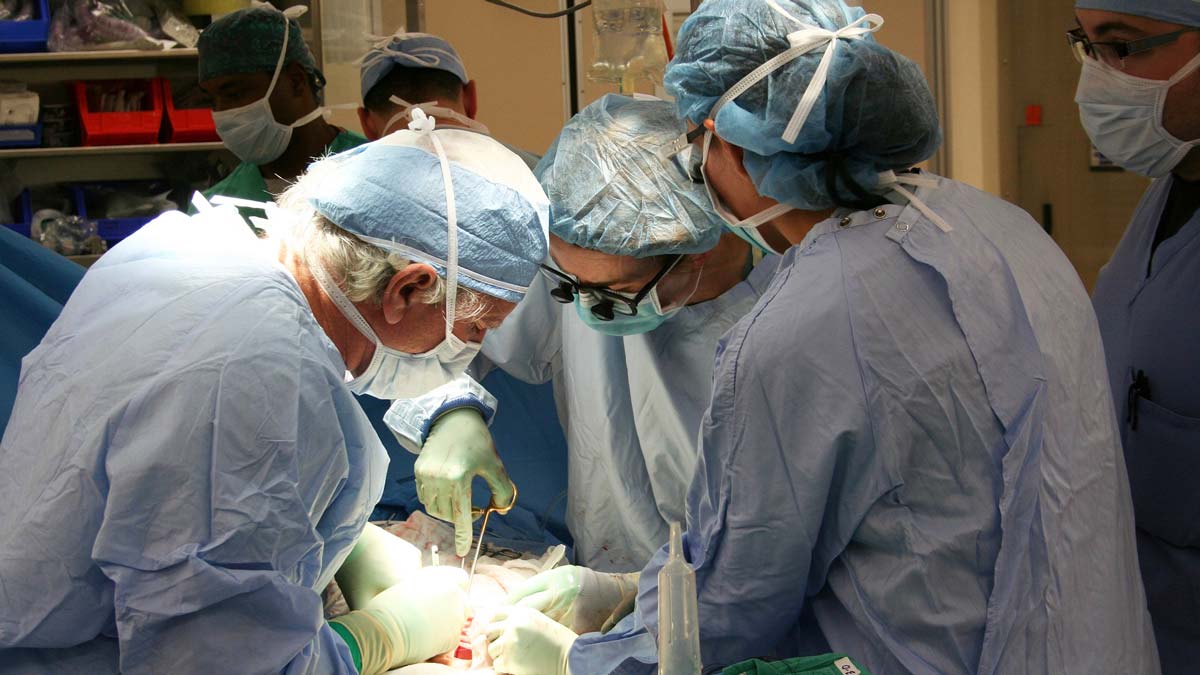Associate professor Au receives two awards to study human genome
Because it holds a wealth of information about human development, physiology, medicine and evolution, the human genome is the source researchers go to to understand the genetic makeup of humans, the many aspects of human health and the hereditary conditions and markers for disease predisposition. Yet, at 3.2 billion base pairs long and with many different areas of interest, accessing the wealth of information stored inside the human genome remains an imposing task due to sheer volume and errors associated with sequencing repetitive portions of DNA.
Researchers like Kin Fai Au, PhD, associate professor of Biomedical Informatics in The Ohio State University College of Medicine, hope that refining the sequencing process will lead to new discoveries about human health during development. He has proposed the use of third-generation sequencing to more accurately read and alter the genome, which earned him two R01 grants, one from the National Human Genome Research Institute (NHGRI) and another from the National Institute of General Medical Sciences (NIGMS), to continue his research into transcriptome and epigenetics of these challenging but biomedically significant genomic loci, respectively.
Dr. Au’s research sponsored by the NHGRI will focus on quantification errors associated with sequencing repetitive genes by developing a set of approaches to integrate high-throughput sequencing data of different lengths. To develop a new approach for this analysis, Dr. Au will begin by determining which genes and the corresponding data create the highest estimation errors; these will act as test cases for the software. He will then construct an approach that integrates short reads and long reads to merge the benefits of each type and decrease the errors. This new approach will then be used to analyze human embryonic stem cells with three different lineages and create a co-expression network for functional analysis.
This research goes hand in hand with Dr. Au’s research sponsored by the NIGMS grant, which will support Dr. Au and his colleagues developing a novel sequencing approach and bioinformatics method to analyze epigenetics complexity, especially on the repetitive genome elements. These elements, along with allele-specific and strand-specific events, have a significant impact on the genotype of a human embryonic stem cell.
To investigate the major type of repetitive elements, including transposable elements, Dr. Au and his colleagues will begin by exploring epigenetic regulation of these elements in stem cells and primordial germ cells. As 43% of the human genome comprises elements that can be transposed with varying degrees of stability, it is important to understand how to regulate such a process, especially the impact of regulation on genome integrity during early embryonic development. Next, they will establish an allele-specific epigenome and the strand-specific epigenome, which will establish more in-depth and precise understanding of the epigenome dynamics.
Dr. Au’s research is integral to learning more about how to sequence and characterize the transcriptome and epigenome of human stem cells. By being able to accurately capture the structure and function of the human genome in both long repeats and transposable elements, more avenues of stem cell research open.
“By developing both experimental assays plus computational software, we offer an innovative toolkit to achieve these long-standing problems,” says Dr. Au. “The innovation of technology and methodology, and the significance of the biology, are the most exciting aspect of this research.”


